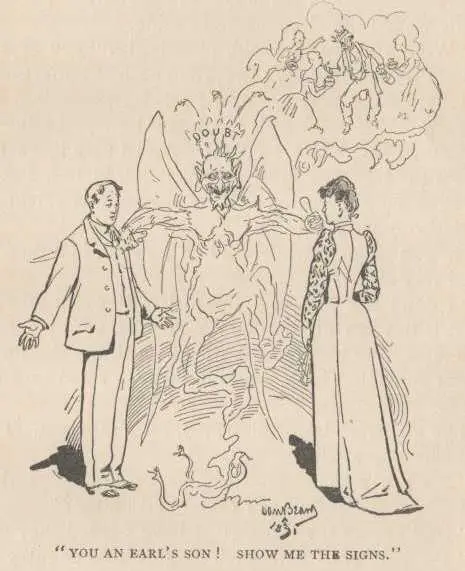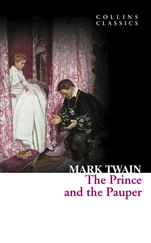Mark Twain - The American Claimant
Здесь есть возможность читать онлайн «Mark Twain - The American Claimant» весь текст электронной книги совершенно бесплатно (целиком полную версию без сокращений). В некоторых случаях можно слушать аудио, скачать через торрент в формате fb2 и присутствует краткое содержание. Год выпуска: 2004, Жанр: Классическая проза, Юмористическая проза, на английском языке. Описание произведения, (предисловие) а так же отзывы посетителей доступны на портале библиотеки ЛибКат.
- Название:The American Claimant
- Автор:
- Жанр:
- Год:2004
- ISBN:нет данных
- Рейтинг книги:5 / 5. Голосов: 1
-
Избранное:Добавить в избранное
- Отзывы:
-
Ваша оценка:
- 100
- 1
- 2
- 3
- 4
- 5
The American Claimant: краткое содержание, описание и аннотация
Предлагаем к чтению аннотацию, описание, краткое содержание или предисловие (зависит от того, что написал сам автор книги «The American Claimant»). Если вы не нашли необходимую информацию о книге — напишите в комментариях, мы постараемся отыскать её.
The American Claimant — читать онлайн бесплатно полную книгу (весь текст) целиком
Ниже представлен текст книги, разбитый по страницам. Система сохранения места последней прочитанной страницы, позволяет с удобством читать онлайн бесплатно книгу «The American Claimant», без необходимости каждый раз заново искать на чём Вы остановились. Поставьте закладку, и сможете в любой момент перейти на страницу, на которой закончили чтение.
Интервал:
Закладка:

"I thank God I am not able—if those are the signs. But yet I am an earl's son and heir. It is all I can say. I wish you would believe me, but you will not. I know no way to persuade you."
She was about to soften again, but his closing remark made her bring her foot down with smart vexation, and she cried out:
"Oh, you drive all patience out of me! Would you have one believe that you haven't your proofs at hand, and yet are what you say you are? You do not put your hand in your pocket now—for you have nothing there. You make a claim like this, and then venture to travel without credentials. These are simply incredibilities. Don't you see that, yourself?"
He cast about in his mind for a defence of some kind or other—hesitated a little, and then said, with difficulty and diffidence:
"I will tell you just the truth, foolish as it will seem to you—to anybody, I suppose—but it is the truth. I had an ideal—call it a dream, a folly, if you will—but I wanted to renounce the privileges and unfair advantages enjoyed by the nobility and wrung from the nation by force and fraud, and purge myself of my share of those crimes against right and reason, by thenceforth comrading with the poor and humble on equal terms, earning with my own hands the bread I ate, and rising by my own merit if I rose at all."
The young girl scanned his face narrowly while he spoke; and there was something about his simplicity of manner and statement which touched her —touched her almost to the danger point; but she set her grip on the yielding spirit and choked it to quiescence; it could not be wise to surrender to compassion or any kind of sentiment, yet; she must ask one or two more questions. Tracy was reading her face; and what he read there lifted his drooping hopes a little.
"An earl's son to do that! Why, he were a man! A man to love!—oh, more, a man to worship!"
"Why?"
"But he never lived! He is not born, he will not be born. The self-abnegation that could do that—even in utter folly, and hopeless of conveying benefit to any, beyond the mere example—could be mistaken for greatness; why, it would be greatness in this cold age of sordid ideals! A moment—wait—let me finish; I have one question more. Your father is earl of what?"
"Rossmore—and I am Viscount Berkeley!"
The fat was in the fire again. The girl felt so outraged that it was difficult for her to speak.
"How can you venture such a brazen thing! You know that he is dead, and you know that I know it. Oh, to rob the living of name and honors for a selfish and temporary advantage is crime enough, but to rob the defenceless dead—why it is more than crime, it degrades crime!"
"Oh, listen to me—just a word—don't turn away like that. Don't go—don't leave me, so—stay one moment. On my honor—"
"Oh, on your honor!"
"On my honor I am what I say! And I will prove it, and you will believe, I know you will. I will bring you a message—a cablegram—"
"When?"
"To-morrow—next day—"
"Signed 'Rossmore'?"
"Yes—signed Rossmore."
"What will that prove?"
"What will it prove? What should it prove?"
"If you force me to say it—possibly the presence of a confederate somewhere."
This was a hard blow, and staggered him. He said, dejectedly:
"It is true. I did not think of it. Oh, my God, I do not know any way to do; I do everything wrong. You are going?—and you won't say even good-night—or good-bye? Ah, we have not parted like this before."
"Oh, I want to run and—no, go, now." A pause—then she said, "You may bring the message when it comes."
"Oh, may I? God bless you."
He was gone; and none too soon; her lips were already quivering, and now she broke down. Through her sobbings her words broke from time to time.
"Oh, he is gone. I have lost him, I shall never see him any more. And he didn't kiss me good-bye; never even offered to force a kiss from me, and he knowing it was the very, very last, and I expecting he would, and never dreaming he would treat me so after all we have been to each other. Oh, oh, oh, oh, what shall I do, what shall I do! He is a dear, poor, miserable, good-hearted, transparent liar and humbug, but oh, I do love him so—!" After a little she broke into speech again. "How dear he is! and I shall miss him so, I shall miss him so! Why won't he ever think to forge a message and fetch it?—but no, he never will, he never thinks of anything; he's so honest and simple it wouldn't ever occur to him. Oh, what did possess him to think he could succeed as a fraud—and he hasn't the first requisite except duplicity that I can see. Oh, dear, I'll go to bed and give it all up. Oh, I wish I had told him to come and tell me whenever he didn't get any telegram—and now it's all my own fault if I never see him again. How my eyes must look!"
CHAPTER XXIV.
Time drags heavily for all concerned—Success of "Pigs in the Clover"—Sellers is "fixed" for his temperance lecture—Colonel and Mrs. Sellers start for Europe—Interview of Hawkins and Sally—Tracy an impostor
Next day, sure enough, the cablegram didn't come. This was an immense disaster; for Tracy couldn't go into the presence without that ticket, although it wasn't going to possess any value as evidence. But if the failure of the cablegram on that first day may be called an immense disaster, where is the dictionary that can turn out a phrase sizeable enough to describe the tenth day's failure? Of course every day that the cablegram didn't come made Tracy all of twenty-four hours' more ashamed of himself than he was the day before, and made Sally fully twenty-four hours more certain than ever that he not only hadn't any father anywhere, but hadn't even a confederate—and so it followed that he was a double-dyed humbug and couldn't be otherwise.
These were hard days for Barrow and the art firm. All these had their hands full, trying to comfort Tracy. Barrow's task was particularly hard, because he was made a confidant in full, and therefore had to humor Tracy's delusion that he had a father, and that the father was an earl, and that he was going to send a cablegram. Barrow early gave up the idea of trying to convince Tracy that he hadn't any father, because this had such a bad effect on the patient, and worked up his temper to such an alarming degree. He had tried, as an experiment, letting Tracy think he had a father; the result was so good that he went further, with proper caution, and tried letting him think his father was an earl; this wrought so well, that he grew bold, and tried letting him think he had two fathers, if he wanted to, but he didn't want to, so Barrow withdrew one of them and substituted letting him think he was going to get a cablegram—which Barrow judged he wouldn't, and was right; but Barrow worked the cablegram daily for all it was worth, and it was the one thing that kept Tracy alive; that was Barrow's opinion.
And these were bitter hard days for poor Sally, and mainly delivered up to private crying. She kept her furniture pretty damp, and so caught cold, and the dampness and the cold and the sorrow together undermined her appetite, and she was a pitiful enough object, poor thing. Her state was bad enough, as per statement of it above quoted; but all the forces of nature and circumstance seemed conspiring to make it worse—and succeeding. For instance, the morning after her dismissal of Tracy, Hawkins and Sellers read in the associated press dispatches that a toy puzzle called Pigs in the Clover, had come into sudden favor within the past few weeks, and that from the Atlantic to the Pacific all the populations of all the States had knocked off work to play with it, and that the business of the country had now come to a standstill by consequence; that judges, lawyers, burglars, parsons, thieves, merchants, mechanics, murderers, women, children, babies—everybody, indeed, could be seen from morning till midnight, absorbed in one deep project and purpose, and only one—to pen those pigs, work out that puzzle successfully; that all gayety, all cheerfulness had departed from the nation, and in its place care, preoccupation and anxiety sat upon every countenance, and all faces were drawn, distressed, and furrowed with the signs of age and trouble, and marked with the still sadder signs of mental decay and incipient madness; that factories were at work night and day in eight cities, and yet to supply the demand for the puzzle was thus far impossible. Hawkins was wild with joy, but Sellers was calm. Small matters could not disturb his serenity. He said—
Читать дальшеИнтервал:
Закладка:
Похожие книги на «The American Claimant»
Представляем Вашему вниманию похожие книги на «The American Claimant» списком для выбора. Мы отобрали схожую по названию и смыслу литературу в надежде предоставить читателям больше вариантов отыскать новые, интересные, ещё непрочитанные произведения.
Обсуждение, отзывы о книге «The American Claimant» и просто собственные мнения читателей. Оставьте ваши комментарии, напишите, что Вы думаете о произведении, его смысле или главных героях. Укажите что конкретно понравилось, а что нет, и почему Вы так считаете.









